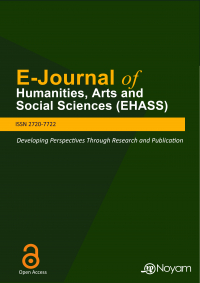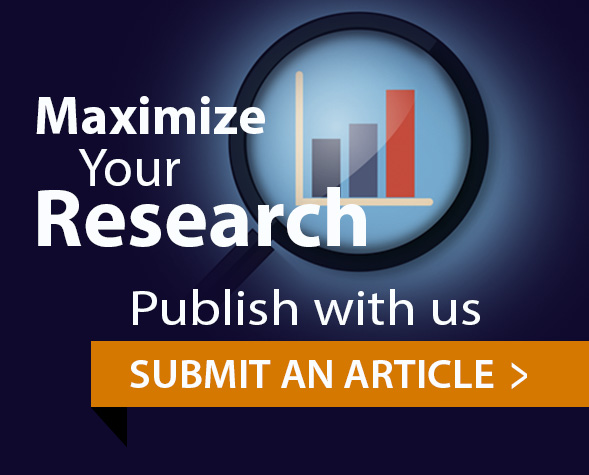
Socio-Economic Realities of Returned Immigrant Reintegration in Ghana: A Systematic Review
Issue: Vol.3 No.12 November 2022 Article 8 pp.613-635
DOI: https://doi.org/10.38159/ehass.20223128 | Published online 28th November 2022.
© 2022 The Author(s). This is an open access article under the CCBY license (http://creativecommons.org/licenses/by/4.0/).
Scholars have observed that in the face of wage differentials that favor destination countries, an increasing number of presumably rational Ghanaian migrants in developed countries choose to return to Ghana.1 To explore this phenomenon, a systematic literature review methodology was employed in collecting, sampling and analyzing migration literature in general, and Ghanaian migration literature in particular to ascertain the dominant mechanisms that surround the return and reintegration of returned Ghanaian immigrants. The paper shows that (un)favorable social, economic and political conditions in Ghana and destination countries are the critical underlying conditions that influence the return of Ghanaian immigrants — suggesting that Ghanaian immigrants are rational actors who perform a cost-benefit analysis of the contextual realities that circumscribes the economic landscape of Ghana and destination countries. The paper identifies that the challenges associated with returnees’ reintegration in Ghana have social, economic and institutional aspects. Against this backdrop, the paper recommends the formulation of a comprehensive return migration policy that emphasizes the sociocultural context of immigrants. The paper advocates for an individual, community and structural intervention to facilitate the mobilization and effective use of returnees’ socio-economic capital.
Keywords: Returnees, Immigrants, Reintegration
Akwasi Agyeman, Edmond, and Mercedes Fernández Garcia. “Connecting Return Intentions and Home Investment: The Case of Ghanaian Migrants in Southern Europe.” Journal of International Migration and Integration 17, no. 3 (August 17, 2016): 745–59. https://doi.org/10.1007/s12134-015-0432-2.
Ammassari, Savina. “From Nation-Building to Entrepreneurship: The Impact of Élite Return Migrants in Côte d’Ivoire and Ghana.” Population, Space and Place 10, no. 2 (March 2004): 133–54. https://doi.org/10.1002/psp.319.
Andall, Jacqueline. Gender, Migration and Domestic Service. Routledge, 2017. https://doi.org/10.4324/9781315254586.
Arhin-Sam, Kwaku. Return Migration, Reintegration and Sense of Belonging : The Case of Skilled Ghanaian Returnees. Nomos Verlagsgesellschaft, 2019.
Arowolo, Oladele O. “Return Migration and the Problem of Reintegration.” International Migration 38, no. 5 (December 16, 2000): 59–82. https://doi.org/10.1111/1468-2435.00128.
Awumbila, Mariama. “Drivers of Migration and Urbanization in Africa: Key Trends and Issues,” 2017.
Awumbila, Mariama, T Manuh, P Quartey, C Tagoe, and T Bosiakoh. Technical Paper Prepared as Part of the African Perspectives on Human Mobility Programme. Oxford: International Migration Institute, 2009.
Bob-Milliar, George M. “Rescuing Migrants in Libya: The Political Economy of State Responses to Migration Crises. The Case of Ghana.” Copenhagen: Danish Institute for International Studies (DIIS), 2012. http://hdl.handle.net/10419/122264.
Dako-Gyeke, Mavis, and Richard Baffo Kodom. “Deportation and Re-Integration: Exploring Challenges Faced by Deportee Residents in the Nkoranza Municipality, Ghana.” Journal of International Migration and Integration 18, no. 4 (November 6, 2017): 1083–1103. https://doi.org/10.1007/s12134-017-0526-0.
Gent, S., and R. Black. Defining, Measuring and Influencing Sustainable Return. Briefing Paper 3. Brighton: Sussex Centre for Migration Research, University of Sussex., 2005.
Gmelch, George. “Return Migration.” Annual Review of Anthropology 9, no. 1 (October 1, 1980): 135–59. https://doi.org/10.1146/annurev.an.09.100180.001031.
IOM. Joint EU-IOM Initiative for Migrant Protection and Reintegration, Ghana. Geneva: IOM, 2019.
———. Reintegration Opportunities in Ghana for Returnees from European Countries. REINTEGR-ACTION – Pilot Initiative to Test Feasible and Sustainable Joint Reintegration Measures from the EU. Ghana: IOM, 2013.
———. Towards an Integrative Approach to Reintegration in the Context of Return. Geneva: IOM, 2017.
———. World Migration: Costs and Benefits of International Migration. Geneva: IOM, 2005.
IOM UN Migration Platform. “Migration in Ghana: A Country Profile 2009.” https://publications.iom.int/books/migration-ghana-country-profile-2009-0, n.d.
Kleist, N. “Returning with Nothing but an Empty Bag: Topographies of Social Hope after Deportation to Ghana.” In Hope and Uncertainty in Contemporary African Migration, 187–206. London ; New York : Routledge, [2017]: Routledge, 2016. https://doi.org/10.4324/9781315659916-15.
Kleist, Nauja. “Disrupted Migration Projects: The Moral Economy of Involuntary Return to Ghana from Libya.” Africa 87, no. 2 (May 11, 2017): 322–42. https://doi.org/10.1017/S000197201600098X.
———. “Modern Chiefs: Tradition, Development and Return among Traditional Authorities in Ghana.” African Affairs 110, no. 441 (October 1, 2011): 629–47. https://doi.org/10.1093/afraf/adr041.
———. “Pushing Development: A Case Study of Highly Skilled Male Return Migration to Ghana.” In Africa’s Return Migrants: The New Developers, edited by L. Åkesson and Baaz M. Eriksson, 64–86. London: Zed Books, 2015.
Koser, K. “Return, Readmission, and Reintegration: Changing Agendas, Policy Frameworks, and Operational Programmes.” In Return Migration, Journey of Hope or Despair?, edited by B. Ghosh, 57–100, 2000.
Massey, Douglas S., Joaquin Arango, Graeme Hugo, Ali Kouaouci, Adela Pellegrino, and J. Edward Taylor. “Theories of International Migration: A Review and Appraisal.” Population and Development Review 19, no. 3 (September 1993): 431. https://doi.org/10.2307/2938462.
Mensah, Esi Akyere. “Involuntary Return Migration and Reintegration. The Case of Ghanaian Migrant Workers from Libya.” Journal of International Migration and Integration 17, no. 1 (February 9, 2016): 303–23. https://doi.org/10.1007/s12134-014-0407-8.
———. The Saga of the Returnee: Exploring the Implication of Involuntary Return Migration, for Development. A Case Study of the Reintegration Process for Ghanaian Migrant Workers from Libya. Norway: Universitetet i Agder; University of Agder, 2012. https://explore.openaire.eu/search/publication?articleId=dedup_wf_001::fadc1fee5e93a4c0e55a169e160061b7.
Rajulton, Fernando. “Migrability: A Diffusion Model of Migration.” Genus 47 1-2 (1991): 31–48.
Ritchie, Jane, and Liz Spencer. “Qualitative Data Analysis for Applied Policy Research.” In The Qualitative Researcher’s Companion, 305–29. 2455 Teller Road, Thousand Oaks California 91320 United States of America : SAGE Publications, Inc., 2002. https://doi.org/10.4135/9781412986274.n12.
Setrana, Mary Boatemaa. “Back Home at Last! Factors Influencing Return and Reintegration of Ghanaian Returnees.” Journal of Identity and Migration Studies 11, no. 1 (2017): 27–46.
———. “Post-Migration Outcomes and the Decision to Return: Processes and Consequence on Development.” African Human Mobility Review 3, no. 3 (2018): 995–1019.
Setrana, Mary Boatemaa, and Steve Tonah. “Do Transnational Links Matter after Return? Labour Market Participation among Ghanaian Return Migrants.” The Journal of Development Studies 52, no. 4 (April 2, 2016): 549–60. https://doi.org/10.1080/00220388.2015.1126255.
———. “Return Migrants and the Challenge of Reintegration: The Case Study of Returnees to Kumasi, Ghana.” A Journal of African Migration 7, no. 142 (2014): 31–51.
Templier, Mathieu, and Guy Paré. “A Framework for Guiding and Evaluating Literature Reviews.” Communications of the Association for Information Systems 37 (2015). https://doi.org/10.17705/1CAIS.03706.
Tenkorang, J.A. “Factors Associated with Return Migration in Wa Municipal in the Upper West Region.” University of Ghana, 2014. http://ugspace.ug.edu.gh:8080/handle/123456789/21549.
Tiemoko, Richmond. “Migration, Return and Socio-Economic Change in West Africa: The Role of Family.” Population, Space and Place 10, no. 2 (March 2004): 155–74. https://doi.org/10.1002/psp.320.
Twum-Baah, K. A. “Volume and Characteristics of International Ghanaian Migration.” In At Home in the World? International Migration and Development in Contemporary Ghana and West Africa, edited by T. Manuh, 55–77. Accra: Sub-Saharan Publishers, 2005.
Whittemore, Robin, and Kathleen Knafl. “The Integrative Review: Updated Methodology.” Journal of Advanced Nursing 52, no. 5 (December 2005): 546–53. https://doi.org/10.1111/j.1365-2648.2005.03621.x.
WONG, MADELEINE. “Navigating Return: The Gendered Geographies of Skilled Return Migration to Ghana.” Global Networks 14, no. 4 (October 2014): 438–57. https://doi.org/10.1111/glob.12041.
World Bank. “Africa Development Indicators 2006.” Washington DC, 2006.
Xiao, Yu, and Maria Watson. “Guidance on Conducting a Systematic Literature Review.” Journal of Planning Education and Research 39, no. 1 (March 28, 2019): 93–112. https://doi.org/10.1177/0739456X17723971.
Aaron Nartey, President and Executive Director of Mainland Community Services Society in British Columbia, Canada and a graduate of the Master of Arts Geography program of Brock University, Canada. Currently interested in social justice, migrant resilience and intersectionality.
Nartey A. “Socio-Economic Realities of Returned Immigrant Reintegration in Ghana: A Systematic Review,” E-Journal of Humanities, Arts and Social Sciences 3, no.12 (2022):613-635. https://doi.org/10.38159/ehass.20223128
© 2022 The Author(s). Published and Maintained by Noyam Publishers. This is an open access article under the CCBY license (http://creativecommons.org/licenses/by/4.0/).
Featured
Others

